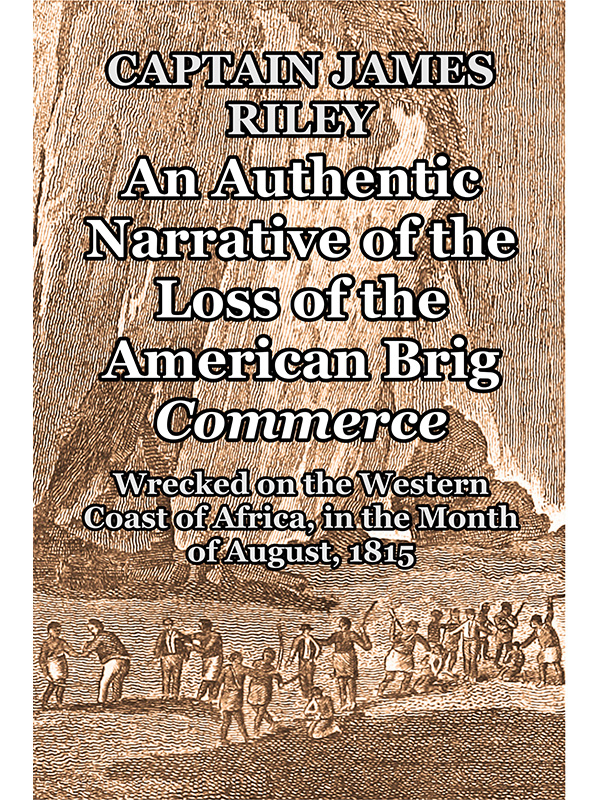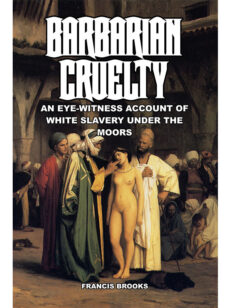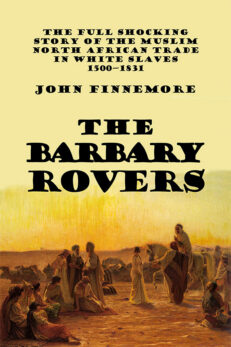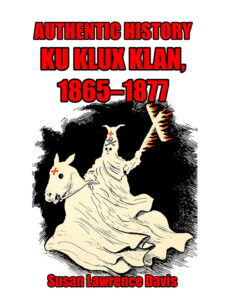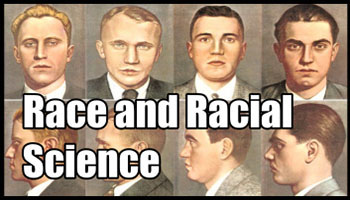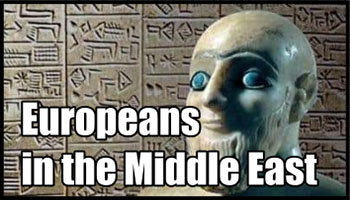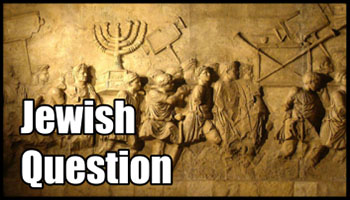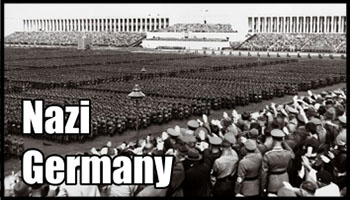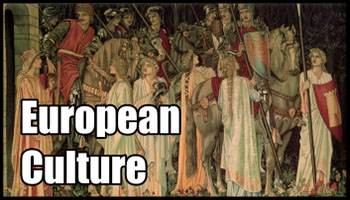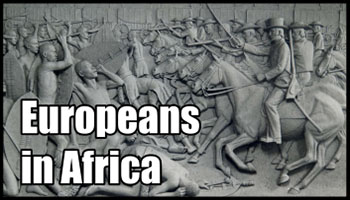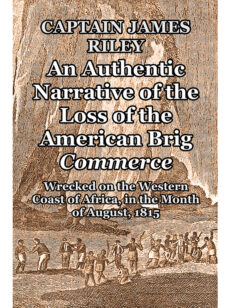Description
By James Riley. The incredible true story of an American ship’s crew taken into slavery by the Muslim slave traders of North Western Africa after being wrecked on that continent’s west coast, has riveted, fascinated, and horrified readers since its first publication two hundred years ago.
Captain Riley’s ship, the Commerce, was sailing from Gibraltar to the Cape Verde Islands when it was lost in fog and wrecked on the west Moroccan coast. There, they were seized by passing Berbers, who, after taking their food and pouring out their drinking water, carried the white men off deep into the Sahara desert.
The book tells in shocking detail the events before and after their capture by marauding Sahrawi natives, and their mistreatment, which included beatings, heat exposure, and starvation (to the point where they were forced to drink their own urine just to stay alive). Eventually, the abused, underfed, and overworked captives were on the point of death when their masters sold them to yet another Arab slave trader. He had however only purchased the white men upon Riley’s promise of cash ransom and a gun.
Riley promised his new owner that he had a friend on the coast at the town of Mogador (nowadays known as Essaouira) in Morocco, who would pay the ransom—something that was completely untrue. Incredibly, an Englishman—and total stranger—came to Riley’s aid in Mogador, and paid the ransom, allowing the survivors to escape captivity and return to America.
Captain Riley’s detailed and horrifying descriptions of his experiences at the hands of the slave trading Muslims of North Africa, typified the treatment suffered by more than a million Europeans who were captured by the Barbary pirates. This valuable account bears witness to a part of history that is now largely suppressed or ignored.
Included in this narrative are Riley’s observations on the way of life of the Sahara Arabs, and the close relationship between them and the large number of Jews who feature throughout in the most surprising of roles.
This account of slavery, torture, and death was so influential that Abraham Lincoln included it in his 1860 campaign biography as the work that had shaped his views on slavery. That Riley’s comments on race and the evils of slavery played a role in Lincoln’s thinking was apparent, because the comments in this book—namely that slavery was an abomination, but, that, once set free, the Africans could not be allowed to live in European society—were exactly the views propagated by the American president.
About the author: James Riley (1777–1840). Of little formal education, Riley sought his career at sea from an early age, becoming most famous for his exploits while a slave of the Arabs. Upon his release from slavery, he spent a few years campaigning for the abolition of slavery, but soon returned to sea, dying on his vessel, the William Tell, while sailing between New York and St. Thomas, “of disease caused by unparalleled suffering more than twenty years previous during his shipwreck and captivity on the desert of Sahara.”
352 pages. Paperback.

